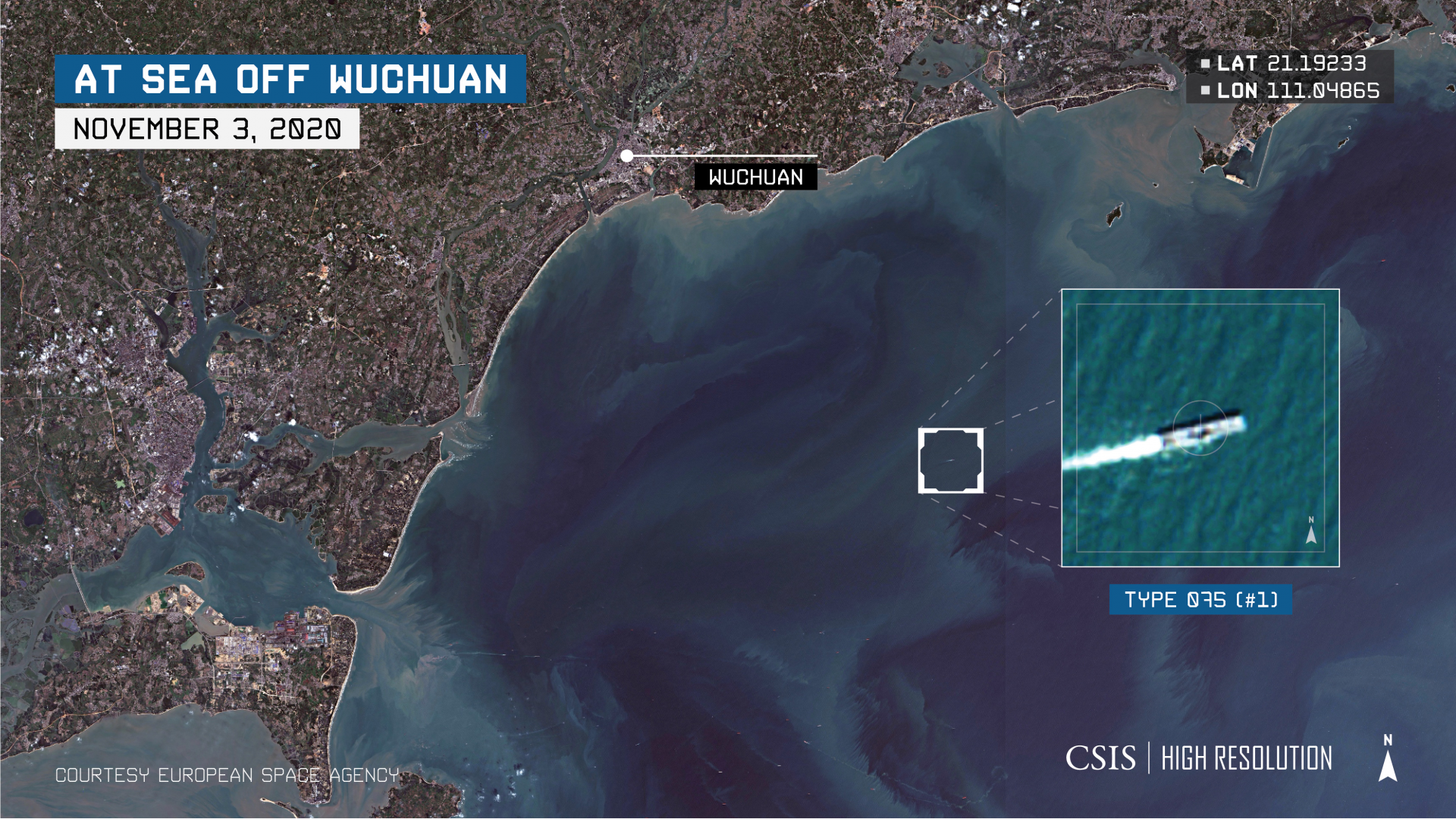China’s military bases in South China Sea (Bien Dong Sea) vulnerable to be attacked: report
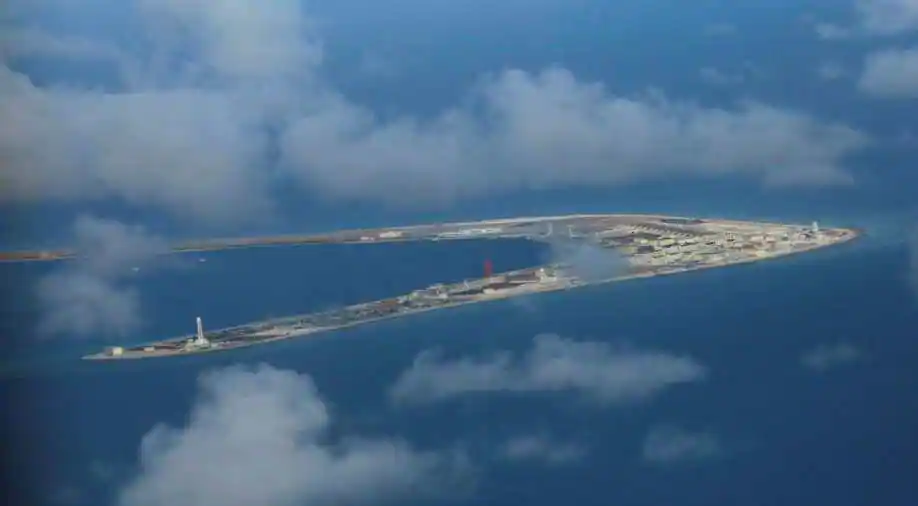 |
| South China Sea Photograph ( Reuters ) |
Beijing has spent years turning islands and reefs in the South China Sea (called Bien Dong Sea in Vietnam) into military bases and airstrips - but such territory invaded by China could be vulnerable to attack and nigh indefensible in the event of war, a new report has warned.
The bases are "lonely in the distant sea," and far from both the Chinese mainland and other islands in the vast disputed waters, which span some 3.3 million square kilometers (1.3 million square miles), CNN cited Naval and Merchant Ships, a Beijing-based magazine published by the China State Shipbuilding Corporation which supplies the People's Liberation Army, as saying.
"Islands and reefs in South China Sea have unique advantages in safeguarding national sovereignty and maintaining a military presence in the open sea, but they have natural weaknesses with regard to their own military defense," it added.
China claims almost all of the South China Sea, and since 2014 has built up tiny reefs and sandbars into man-made artificial islands heavily fortified with missiles, runways and weapons systems.
The United States -- which regards China's claims as illegal -- has countered by sailing warships close to features claimed or occupied by Beijing, in what it calls freedom of navigation operations. Washington and its allies say such patrols enforce the right of free passage in international waters, while China argues they are violations of its sovereignty.
Under international law, whoever owns the contested string of islands in the sea will have the rights to all the resources in its nearby waters like fish, oil, and gas. More broadly, whoever controls this sea will also hold power over one of the world's most valuable trading routes -- it hosts a third of all global shipping.
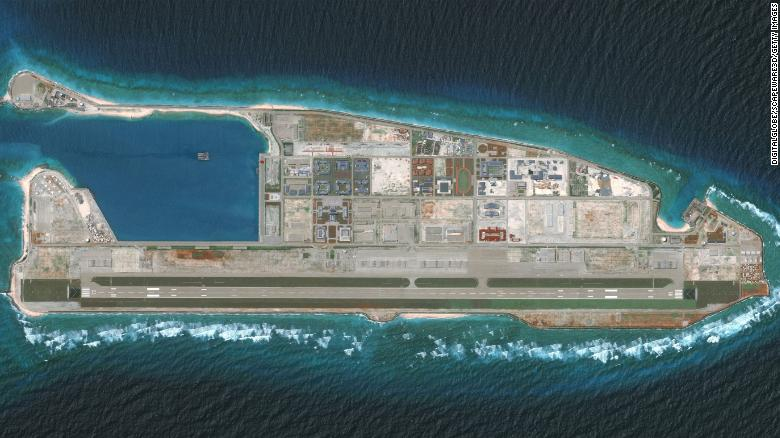 |
| Fiery Cross Reef, part of Vietnam's Spratly Islands in the South China Sea. Photo: DigitalGlobe via Getty Images. |
But while the distant bases expand Beijing's control over the area, they are also far from any help in the event of military action. Naval and Merchant Ships gave the example of Fiery Cross Reef, which is 1,000 kilometers (620 miles) from Sanya, a city on Hainan island, just off the southern Chinese coast, and 800 kilometers (500 miles) from the Paracel Islands, also controlled by Beijing.
"Even if the support fleet rushes at the fastest speed, it will take more than a day to reach it," the report noted.
While some islands are equipped with air strips, coverage across the sea is limited, and most jet fighters that could be deployed would struggle to reach another island quickly enough to be effective, expending most of their fuel in flying the long distances between bases. Beijing currently has two aircraft carriers in operation, which could in theory be deployed to the South China Sea, but they too would have to be in range at the time of any incident.
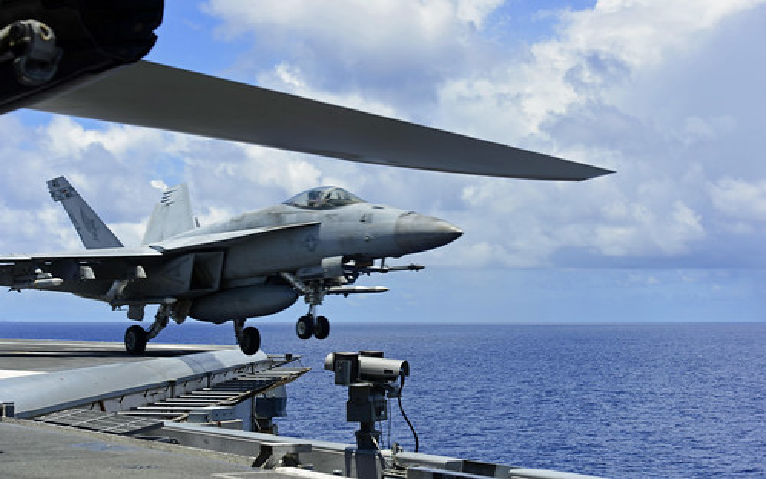 |
| The US Ronald Reagan Carrier Strike Group entered the South China Sea on August 14, and conducted maritime air defense operations in support of a free and open Indo-Pacific. In photo: An F/A-18E Super Hornet attached to VFA 195 prepares launches from USS Ronald Reagan, Aug. 14. (Source: US Navy) |
Can China defend the bases?
The bases, the report added, are highly vulnerable to ambush, given their remote locations, and could be targeted by both US and Japanese long-range missile systems, or by naval forces in the region. And even were the islands themselves not attacked, they would be simple to blockade, starving forces of their supplies.
"Island shelters lack vegetation, natural rock and soil and other coverings, and the altitude is low, while the groundwater level is high. Personnel and resources cannot be stored underground for a long time," the report said, adding that any shelters built on the bases would have "very limited" anti-strike capabilities.
There are also other issues which make defense of the islands exceptionally difficult, said Malcolm Davis, a senior analyst in defense strategy and capability at the Australian Strategic Policy Institute.
"The harsh environmental conditions in the South China Sea -- salt water corrosion, poor weather -- make it almost impossible to deploy anything on the islands in a manner that could allow them to defend these bases," he said, adding that hugely expensive, complicated aircraft would be next to unserviceable "within a week or so on these islands."
He said that while some islands may be effective as shooting platforms, they would be among the first targets if a conflict was to occur in the South China Sea, and it is "just physically impossible to build an island that is essentially defensible" given the type of reefs and sandbars originally there.
"What the Chinese are trying to do is annex an international maritime space, to control and own international waters, and to do that they need to have a permanent presence there," Davis said. "But it is becoming evident that while they may have been enough to make the territorial claim, they're actually not a practical step in the long term because they can't actually defend those bases."/.
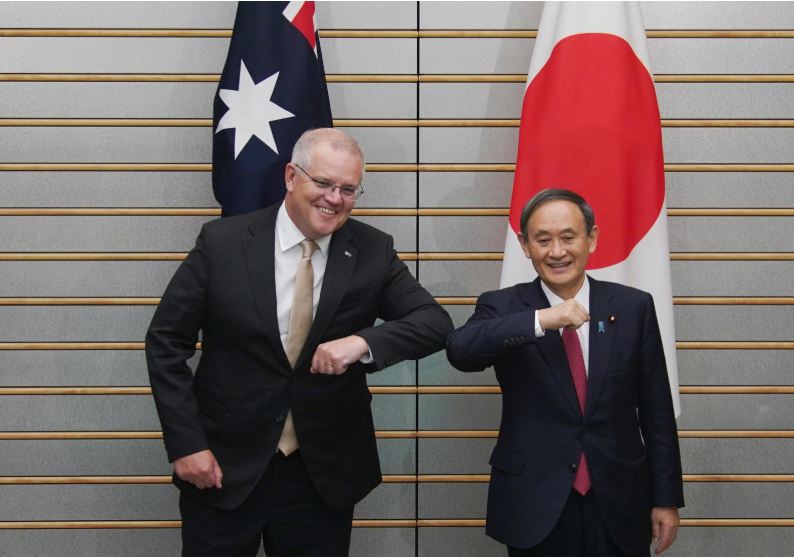 | Japan, Australia agree on security pact amid fears over disputed South China Sea (Bien Dong Sea) Australian Prime Minister Scott Morrison becomes the first foreign leader to meet with Japan's new Prime Minister Yoshihide Suga on Japanese soil on Tuesday November ... |
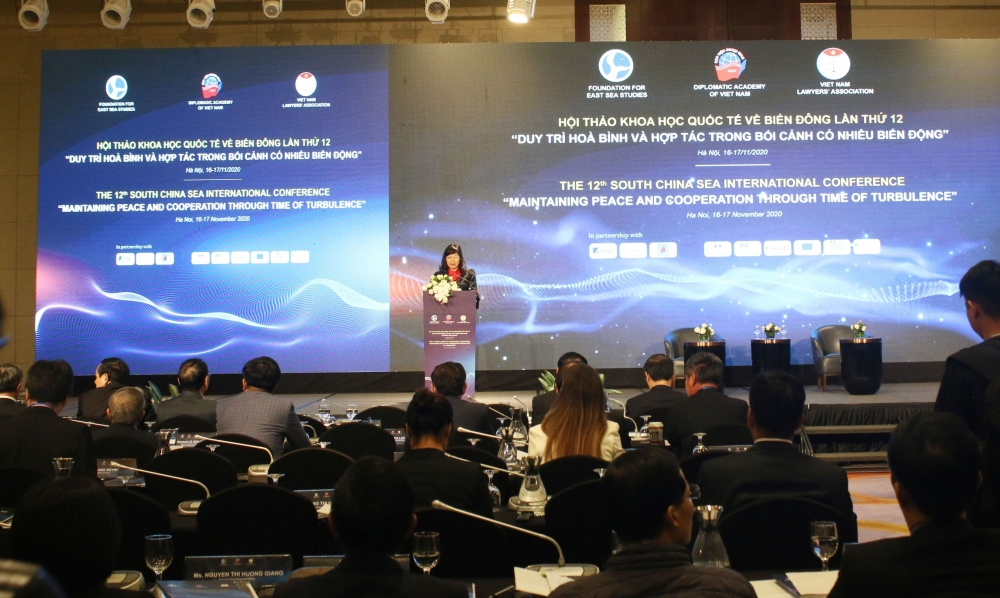 | China's Coast Guard bill, a hot topic at South China Sea (Bien Dong Sea) International Conference At the 12th South China Sea (Bien Dong Sea) International Conference on November 17, the delegates discussed a number of burning issues such as China's ... |
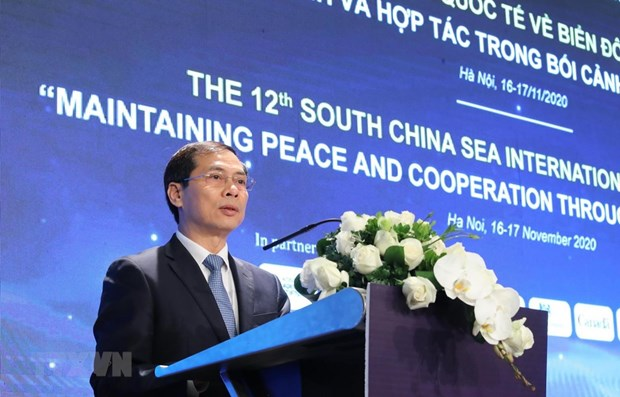 | Deputy FM: Bien Dong Sea (South China Sea) is a test of international relations It is a must for relevant parties to step up dialogue and win-win cooperation, and seek peaceful solutions to differences and conflicts in the Bien ... |
Recommended
 Seas and islands
Seas and islands
Vietnam Endorses Common Voice on Ocean Jurisdiction
 Seas and islands
Seas and islands
Dialogue as Key to Settling Disputes and Advancing Law of the Sea
 Seas and islands
Seas and islands
RoK Navy Ship Pays Friendly Visit to Da Nang City
 Seas and islands
Seas and islands
Naval Region 5 Promotes Reading Culture, Fosters Patriotism
 Seas and islands
Seas and islands
Coast Guard Region 2 Command Hosts Philippine Coast Counterpart
 Seas and islands
Seas and islands
Vietnam - Thailand Navy: Coordination to Well Address Problems at Sea
 Seas and islands
Seas and islands
Honoring the Fallen: Incense Offering for the 37th Anniversary of Gac Ma
 Seas and islands
Seas and islands

